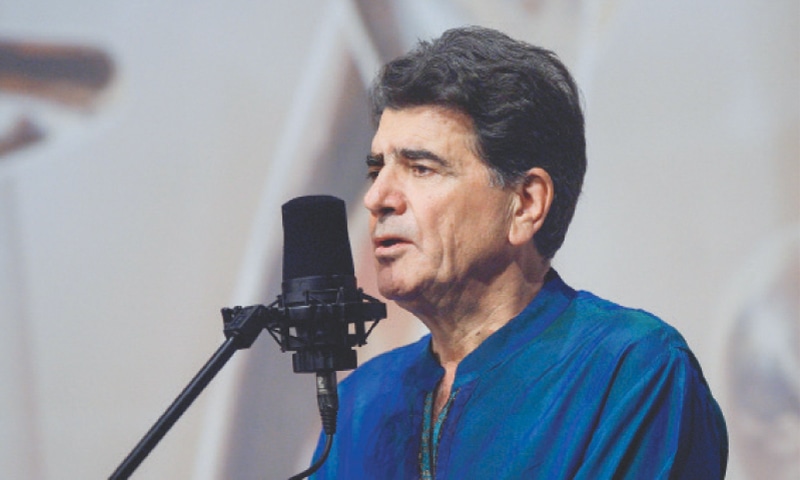TEHRAN: Singer, instrumentalist and composer Mohammad-Reza Shajarian, who embodied traditional and classical Iranian music for more than half a century both at home and abroad, died on Thursday aged 80.
A national treasure in his homeland, Shajarian nevertheless maintained difficult relations with the authorities in Tehran throughout his career, first under the reign of the Shah and then with the Ayatollahs.
The Ostad (master), who had been battling cancer for several years, “flew to meet his beloved (God)”, his son Homayoun Shajarian, himself a famous singer, wrote on Instagram.
Soon after the announcement, several hundred fans converged on the Jam hospital in Tehran where he had been admitted a few days ago in a critical condition.
News of his death sparked an outpouring of grief on social media.
Shajarian had been persona non grata on state broadcaster IRIB since 2009, but that did not stop Iranians from listening to his tenor voice.
Born on Sept 23, 1940, into a religious family in Mashhad, north-eastern Iran, Shajarian was initiated at the age of five to Islamic psalmody by his father, a reciter of the holy Quran.
At 12 he began his initiation -- in secret from his parents -- to the santur, a percussion-stringed instrument whose roots date back to pre-Islamic Persia.
He was trained to perform the “radif” -- the traditional repertoire that forms the basis of Persian secular music that every artist is expected to master before moving on to improvisation, typical in Iranian classical music.
Following in his father’s footsteps, Shajarian first performed as a reciter of the holy Quran.
In 1959, he made his debut on radio and his voice quickly carried him to fame.
Shajarian quit Iranian radio and television a few days after “Black Friday” — Sept 8, 1978 -- denouncing the massacre of demonstrators carried out on that day by the Shah’s police.
Shajarian had been critical of the Ayatollahs, accusing them of being opposed “to the very idea of the Persian identity of Iranians”.
In 1997, he assailed the state broadcaster in an open letter, accusing it of using his works without his permission, of censoring them, and generally “ignoring moral values”.
The maestro demanded they stop airing his voice, except for two pieces, Monajat and Rabbana, psalms taken from the holy Quran that he only allowed to be played during Ramazan. The broadcaster rejected his request.
Published in Dawn, October 9th, 2020
















































